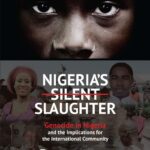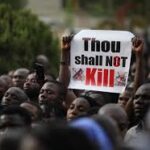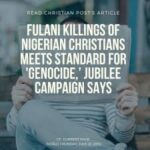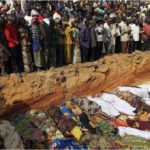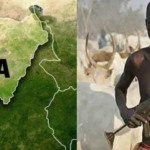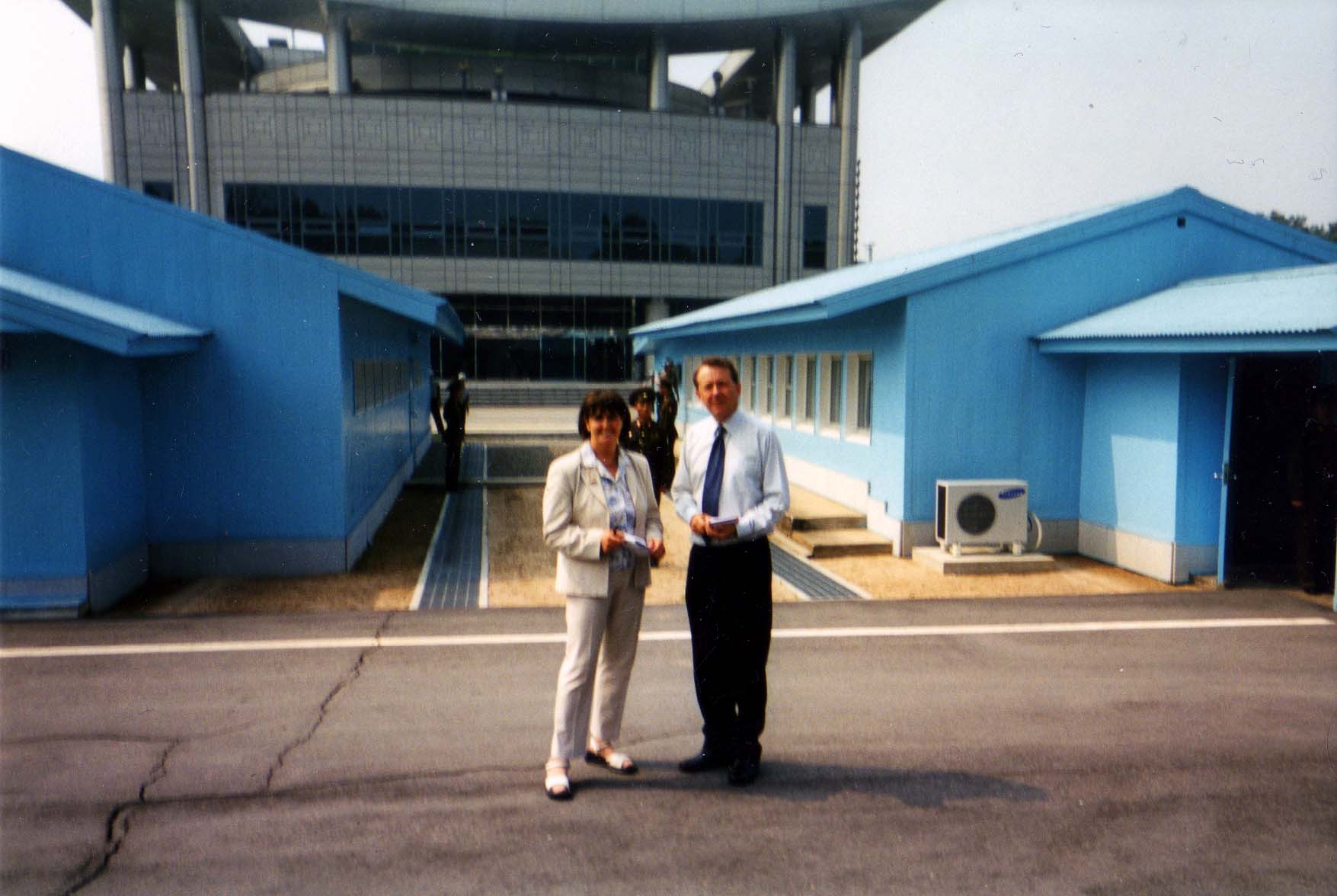
Baroness Cox and Lord Alton
Baroness (Caroline) Cox and Lord (David) Alton write to the International Criminal Court about the unfolding tragedy in Nigeria and the culture of impunity as the Nigerian authorities and the international community fail to act; and in four parliamentary replies today the UK Government respond to the statement by the Rt Rev Abiodun Ogunyemi, the Anglican Bishop of Zaria, on 24 July, that the campaign against Christians in Nigeria is a “genocide”; but in a continuing act of delusion the Foreign Office deny that radical religious ideology is “the principal driver of the violence” – which conveniently prevents them from having to take action under the Genocide Convention.
Text of a Letter Sent Today To the International Criminal Court in the Hague
Ms Fatou Bensouda
Information and Evidence Unit
Office of the Prosecutor
Post Office Box 19519
2500 CM The Hague
The Netherlands
sent by email
6 August 2020
Dear Ms Bensouda,
Re: The Situation in Nigeria
Following a meeting with Mr Phakiso Mochochoko and the team working on the situation in Nigeria last week, and further to our previous correspondence (14 February; 25 June; 23 July) we write to draw your attention to a new report by UK-based Igbo Councillors, which cites evidence of escalating attacks against Christians and Igbo people (one of the three major tribes in Nigeria) in south-eastern states.
One of the helpful and constructive outcomes of our meeting with your colleagues was the suggestion that we continue to send you authenticated information which, while not directly relevant to the specific cases which you are assessing, will be information which you will be able to examine in due course. What follows is certainly illustrative of the culture of impunity which we discussed.
According to the report: “During [the] period of strict lockdown…. [Fulani herders] have migrated in trailer and lorry loads with AK47s and other assorted weapons and ammunitions. They have taken occupation of the farmlands displacing the communities and causing havoc and damaging properties as well as senseless and traumatic killings of the villagers to take occupation of their lands and communities.” As of May 2020, 350 Igbo villages have reportedly been occupied by Fulani herders, as well as by Shuwa Arab mercenaries.
Their findings coincide with the launch of a report by the International Committee On Nigeria (ICON) and International Organization on Peace-building & Social Justice (PSJ), ‘Nigeria’s Silent Slaughter: Genocide in Nigeria and the Implications for the International Community’, which found that, since 2000, Fulani herders have killed 19,000 people (primarily Christian farmers) while Boko Haram have killed 43,000 people (the vast majority of women and children).
There is now a strong body of evidence to demonstrate a severe escalation of attacks by Islamist groups and a failure of the Nigerian courts to bring perpetrators to justice. We ask again, therefore, for an urgent review of the recently-submitted report by the UK All-Party Parliamentary Group on International Freedom of Religion or Belief, entitled ‘Nigeria: Unfolding Genocide?’ and to ensure that those responsible for these atrocities no longer oppress religious freedom with impunity.
Yours sincerely,
Baroness Cox
Lord Alton of Liverpool
===========================
Baroness Sugg, the Foreign and Commonwealth Office, has provided the following answer to your written parliamentary question (HL7499):
Question by Lord Alton of Liverpool:
To ask Her Majesty’s Government what discussions they have had with the government of Nigeria about the prosecution of those responsible for (1) killings of, and (2) violent attacks against, Christians in Nigeria; how many Fulani people have been prosecuted for any such attacks; and what steps they are taking, through UK aid programmes, to assist with (a) upholding the rule of law, (b) the protection of minorities, and (c) supporting affected communities in Nigeria. (HL7499)
Tabled on: 29 July 2020
Answer:
Baroness Sugg:
The UK Government condemns all killings and incidents of violence against innocent Nigerian civilians, including terrorist attacks in North East Nigeria and incidents of intercommunal violence in the Middle-Belt. These attacks have had devastating effects on communities of all faiths, including Christian communities. We continue to encourage the Government of Nigeria to take action to bring the perpetrators of these attacks to justice. Prosecutions of those responsible, who come from a range of ethnic and religious backgrounds, is primarily a matter for the Nigerian State.
In the North East of Nigeria, the UK is supporting efforts to tackle the terrorist threat and providing a comprehensive package of security, stabilisation and humanitarian assistance to support communities affected by the conflict. In the Middle Belt, the British High Commissioner and her team are increasing their diplomatic engagement with states affected by intercommunal violence. The UK Government is also providing technical support to the Nigerian Government for the development of the National Livestock Transformation Plan. The plan aims to promote cattle-rearing in one place, rather than the traditional nomadic practice, to limit competition over land and resources leading to violence.
The Prime Minister discussed insecurity in Nigeria with President Buhari at the UK Africa Investment Summit in January. More recently, the Minister for Africa discussed intercommunal violence in Nigeria with President Buhari’s Chief of Staff, on 29 June. We have made clear to the Nigerian authorities, at the highest levels, the importance of protecting civilians, including ethnic and religious minorities, human rights and upholding the rule of law.
Date and time of answer: 06 Aug 2020 at 16:41.
===========
Baroness Sugg, the Foreign and Commonwealth Office, has provided the following answer to your written parliamentary question (HL7425):
Question by Lord Alton of Liverpool:
To ask Her Majesty’s Government what assessment they have made of (1) the statement by the Rt Rev Abiodun Ogunyemi, the Anglican Bishop of Zaria, on 24 July, that the campaign against Christians in Nigeria is a “genocide”, and (2) the responsibilities of (a) the government of Kaduna State, (b) the government of Nigeria, and (c) the international community, under the 1948 Convention on the Prevention of Genocide; what plans they have to reassess the causes of the attacks against Christians in Nigeria; and whether any such plans will discount climate change as the major cause of such attacks. (HL7425)
Tabled on: 28 July 2020
Answer:
Baroness Sugg:
We are aware of the statement made by the Right Reverend Abiodun Ogunyemion on 24 July. The UK Government condemns all incidents of intercommunal violence in Nigeria, including the recently reported attacks in Kaduna State referred to in the Bishop’s statement. Intercommunal violence in Kaduna State and Nigeria more widely affects communities of all faiths. We have made clear to the Nigerian authorities, at the highest levels, the importance of protecting civilians and human rights for all.
It is UK Government policy not to unilaterally determine whether genocide has occurred, in line with the Genocide Convention. This is a matter for competent courts and tribunals, including the International Criminal Court, after consideration of all the evidence, rather than governments or non-judicial bodies.
The UK Government’s assessment remains that climate change is one of the drivers of intercommunal violence in Nigeria because of the resulting competition for natural resources. The Bishop of Truro also considered the effects of climate change on intercommunal violence in Nigeria in his independent report on the global persecution of Christians.
Date and time of answer: 06 Aug 2020 at 16:38.
=============
Baroness Sugg, the Foreign and Commonwealth Office, has provided the following answer to your written parliamentary question (HL7424):
Question by Lord Alton of Liverpool:
To ask Her Majesty’s Government what assessment they have made of reports (1) that at least 80 people have been killed in July in southern Kaduna, and (2) that 620 Christians have been killed in the region in the last 18 months; and what they consider to be the major reason for these attacks. (HL7424)
Tabled on: 28 July 2020
Answer:
Baroness Sugg:
The UK Government condemns all incidents of intercommunal violence in Nigeria, including reported attacks in southern Kaduna State. We are concerned by a recent increase in attacks in the state. These attacks have had devastating effects on communities of all faiths, including Christian communities. We have made clear to the Nigerian authorities at the highest levels the importance of protecting civilians and human rights for all. There are many underlying causes to intercommunal violence in Nigeria, which include disputes over natural resources and competition over land exacerbated by climate change and population growth. Religious identity is also a factor in some incidents of intercommunal violence, but we do not assess it to be the principal driver of the violence.
Date and time of answer: 06 Aug 2020 at 16:35.
=============
Baroness Sugg, the Foreign and Commonwealth Office, has provided the following answer to your written parliamentary question (HL7423):
Question by Lord Alton of Liverpool:
To ask Her Majesty’s Government what assessment they have made of (1) the killing of ten people, (2) the injury of others, and (3) the destruction of homes, during an attack by armed assailants on Zikpak, Nigeria, on 24 July; and how (1) UK aid, and (2) diplomatic influence, is being used (a) to protect vulnerable minorities, and (b) to address any escalation in attacks in Nigeria. (HL7423)
Tabled on: 28 July 2020
Answer:
Baroness Sugg:
The UK Government condemns all incidents of intercommunal violence in Nigeria, including a recently reported attack in Zikpak, Kaduna State on 24 July. There are many underlying causes to intercommunal violence in Nigeria, which include disputes over natural resources and competition over land exacerbated by climate change and population growth. The British High Commissioner and her team are increasing their diplomatic engagement with states affected by intercommunal violence, including Kaduna state. Officials from the British High Commission are engaging with State Governments, faith and community leaders, peacebuilding organisations, the Federal Government and others. The FCO co-hosted a conference at Wilton Park in February on Fostering Social Cohesion in Nigeria, which brought together a wide range of stakeholders to discuss the complex causes of intercommunal violence. Discussions helped to form recommendations to tackle intercommunal violence in affected states in Nigeria. The Minister for Africa discussed intercommunal violence with the Nigerian President’s Chief of Staff in June.
The UK is also providing technical support to the Nigerian Government for the development of the National Livestock Transformation Plan. The plan aims to promote cattle-rearing in one place, rather than the traditional nomadic practice, to limit competition over land and resources leading to violence.
We will continue to encourage the Government of Nigeria to take urgent action to protect those at risk of intercommunal violence, to bring perpetrators to justice and to implement long-term solutions that address the root causes and meet the needs of all communities.
Date and time of answer: 06 Aug 2020 at 16:34.
=============================
Yet, while one arm of the Foreign Office endlessly attributes Nigeria’s killings to climate change and denies that religious ideology is a principal driver of the violence, another arm of the Foreign Office issues this advice to its citizens:
https://thenationonlineng.net/insecurity-uk-issues-travel-warning-to-its-nationals-in-niger
The UK Foreign Office also revealed that “Boko Haram and Islamic State West Africa (ISWA) are continuing to actively plan to kidnap foreigners.
“As well as in north-east Nigeria, extremist groups operate in some northern and middle belt states including Bauchi, Gombe, Kano, Kogi, Kaduna, Niger and Adamawa.”
Bishop of Sokoto says: ‘Genocide is happening in Nigeria’
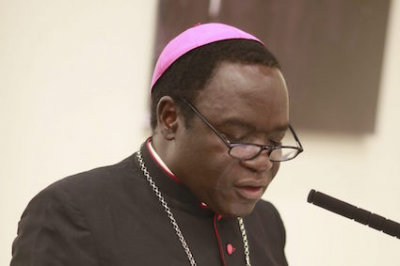
Systematic violence against Nigerian Christians by Fulani herdsmen constitutes genocide, according to a leading Catholic bishop who stressed that Muslims are also falling foul of the violence. Following the execution of five aid workers by Islamic State West African Province (ISWAP), Bishop Matthew Hassan Kukah of Sokoto told Catholic charity Aid to the Church in Need (ACN) he believed the recent violence was genocidal in nature.
When asked whether he agreed that that Fulani killings of Christians can be categorised as genocide according to international law, he said: “I believe so”
Bishop states: ‘Genocide is happening in Nigeria’ | ICN
Also see:
https://www.davidalton.net/2020/07/22/nigeria-another-wave-of-violence-in-southern-kaduna-state/

